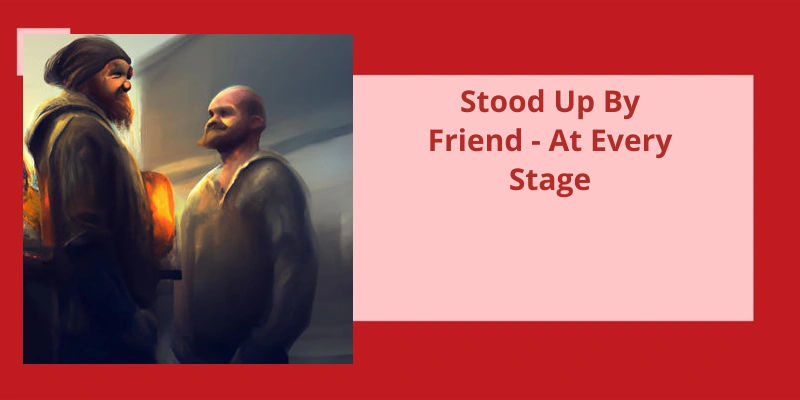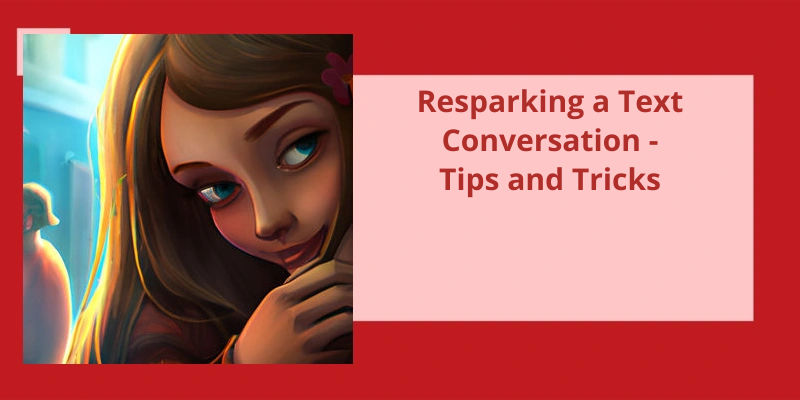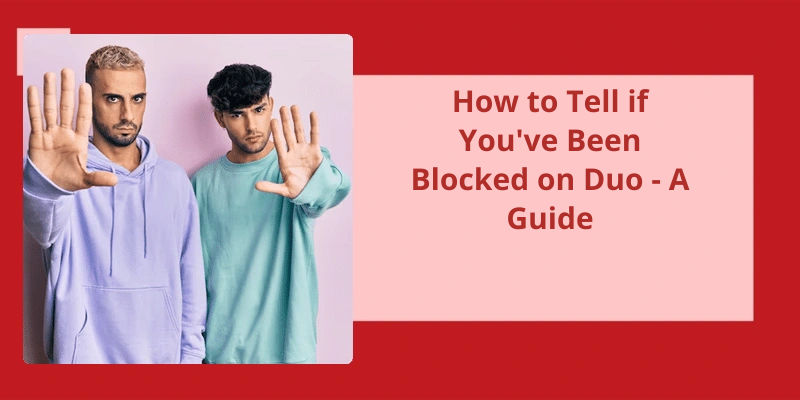Have you ever experienced the heart-wrenching feeling of being stood up by a friend, over and over again, at every stage of your friendship? It can be deeply disheartening and leave you questioning the authenticity and value of the relationship. Perhaps it started with a simple coffee date that never materialized or a planned shopping spree that turned into a solo adventure. Maybe it was the countless times you reached out for support, only to be met with silence and indifference. Being stood up by a friend can be a repeated cycle of dashed hopes and broken promises, leaving you feeling neglected and unimportant. In this blog article, we delve into the emotional toll of being stood up by a friend, explore potential reasons behind this behavior, and offer guidance on how to navigate such a challenging situation.
What Is the Meaning of Being Stood Up by a Friend?
Being stood up by a friend is a hurtful experience that goes beyond a mere cancellation or change of plans. It’s a personal attack on the value and importance of your time, energy, and feelings. When a friend stands you up, they’re essentially conveying that they’ve no respect for your commitment or the effort you put into setting aside time to spend with them. It can be particularly disheartening because you’d eagerly anticipated spending quality time together, only to be let down.
The act of standing someone up sends a clear message that the person who bailed didn’t value the friendship or prioritize it enough to follow through on their promised presence. It can leave the individual who was stood up feeling neglected, unimportant, and even rejected. The emotional impact can be significant, as it may raise doubts about the genuineness of the friendship or the level of care the other person possesses.
Moreover, the sense of being stood up can inflict further damage to ones self-esteem and trust in others. It can create a lingering sense of insecurity, making it harder to open up and rely on friends in the future. This incident can lead to questioning not only the specific friends intentions but also the overall reliability of others within the social circle.
It conveys a lack of appreciation for your time and emotions, and it can cause significant emotional harm. It’s essential to reflect on the impact of such behavior and consider whether this friendship truly aligns with your values and deserves your continued investment.
Building Resilience and Self-Esteem After Being Stood Up
- Focus on self-care and self-love
- Engage in activities that bring you joy and boost your confidence
- Surround yourself with supportive friends and family
- Practice positive affirmations and mindfulness
- Set realistic expectations in dating and relationships
- Learn from the experience and grow stronger
- Seek professional help if needed
- Explore new hobbies and interests
- Build a strong support network
- Work on developing a resilient mindset
Standing someone up is a hurtful act that can leave the other person feeling rejected and unimportant. It sends a clear message that their time and presence aren’t valued, leaving them feeling abandoned and insignificant. This type of behavior can damage trust and communication, making the other person question their importance in your life. Ultimately, standing someone up reflects a lack of empathy and care, leaving a lasting negative impact on the relationship.
What Happens When You Stand Someone Up?
What happens when you stand someone up? The truth about standing someone up is that it makes them feel a) abandoned, b) like you’d something better to do, and c) that they better get used to being second on your list. Nothing says “evil” like standing someone up.
The act of standing someone up isn’t just a casual flake or a last-minute cancellation. It’s a deliberate abandonment of someones trust and expectations. When you stand someone up, you send a message that their time and feelings are insignificant to you. It leaves them questioning their worth and feeling utterly alone in that moment.
Moreover, being stood up gives the impression that the person who did it had something more exciting or important come up. It suggests that they prioritize other things over the people in their lives. It leaves the person feeling dismissed and unimportant, as if they were easily replaced by something else that caught your attention.
Ultimately, standing someone up damages the trust and bond between friends. It creates a rift that may be difficult to heal. The person who’s stood up may question why they even bothered to make plans with you in the first place. They may hesitate to reach out again, fearing another disappointment in the future. This seemingly small act can have long-lasting consequences on the relationship.
It’s a statement that says you value other things more than the person you stood up. It undermines trust, damages self-esteem, and sends a clear message that the person isn’t a priority in your life. Therefore, it’s important to be considerate and respectful of others time and feelings, and to honor commitments made.
How to Recover From Being Stood Up and Rebuild Trust
- Reflect on the situation and your feelings
- Communicate openly and honestly with the person who stood you up
- Express your feelings and concerns about rebuilding trust
- Listen to their perspective and ask for reassurance
- Take time to heal and rebuild your self-confidence
- Set clear boundaries and expectations for future plans
- Give the person a chance to make it up to you
- Consider seeking professional help if trust issues persist
- Foster open communication and understanding in the relationship
- Allow time for trust to be rebuilt gradually
Source: What It Really Means to Stand Someone Up – QNotes
Understanding the motivations behind standing someone up can be complex, as there’s rarely a straightforward explanation. While some instances may arise from unintentional mishaps, such as time mix-ups or oversleeping, others can be attributed to the apprehension and anxiety that come with strong emotions. Nikki, a 27-year-old, recounts an instance when the fear of her burgeoning feelings led her to stand up a date.
Why Would Someone Stand Someone Up?
She didnt want to get hurt, so she avoided the situation altogether. Other times, it could be due to a lack of interest or a change of heart. Perhaps they realized they werent as attracted to you as they initially thought or maybe they met someone else. It’s also possible that they’d a legitimate emergency or personal issue that prevented them from showing up. Regardless of the reason, being stood up can be incredibly hurtful and frustrating. It can leave you feeling rejected, questioning your worth, and wondering what you did wrong.
When youre stood up by a friend, it can be even more confusing. Friends are supposed to be there for you, reliable and trustworthy. So when a friend consistently stands you up at every stage, it can be difficult to understand why. Perhaps your friend is going through something personal and is unable to prioritize your plans. Maybe they struggle with time management or have a tendency to overcommit themselves. It’s also possible that they don’t value your friendship as much as you do. Whatever the reason, it’s important to address the issue and communicate your feelings.
Before jumping to conclusions or making assumptions, try having an open and honest conversation with your friend about how their behavior has been making you feel. Explain that being stood up repeatedly has been hurtful and has made it difficult for you to trust their reliability. Give them an opportunity to share their perspective and listen to their explanation. It’s possible that they may not even realize the impact of their actions or that they’re hurting you.
If your friend continues to stand you up and doesn’t show any effort to change their behavior, it may be time to reevaluate the friendship. Healthy friendships should be built on trust, respect, and support. If your friend consistently shows that they aren’t able or willing to meet these criteria, it may be necessary to distance yourself from the toxic dynamic. Surround yourself with people who value and appreciate you, and don’t settle for less than you deserve. Being stood up by a friend is never easy, but remember that it’s their loss, not yours.
While it’s generally unacceptable to stand someone up without providing an explanation, there are rare cases where justifications may not be necessary. However, it’s essential to consider the circumstances and ensure that there’s a valid reason for such actions.
Is It Ever OK to Stand Someone Up?
Is it ever OK to stand someone up? Sure, something may have come up, but really, is it ever OK to stand someone up, without even a text to let them know you couldnt make it? The short answer is, not really, but there are a couple of situations in which you shouldnt have to explain yourself to the person youre standing up.
If you’ve a gut feeling that meeting with someone could put you in harms way, it’s better to prioritize your own safety and cancel the plans. While it may be rude to simply not show up, your personal well-being should always take precedence in such situations.
Another situation where standing someone up might be understandable is if there’s been a major emergency or crisis that requires your immediate attention. Sometimes life throws unexpected curveballs, and it simply may not be possible for you to honor commitments. However, in these cases, it’s still important to communicate with the person beforehand or as soon as possible to apologize and explain the situation.
Aside from these rare exceptions, standing someone up without a valid reason or communication is generally considered disrespectful and inconsiderate. It reflects poorly on your character and can damage trust and relationships. It’s important to be mindful of the impacts our actions have on others and to treat them with the same respect and consideration that we’d want to receive.
In a world where technology makes communication so easy and accessible, there’s little excuse for leaving someone waiting without any explanation. A simple text or phone call takes only a few seconds and can prevent the frustration and hurt that comes with being stood up. It’s always better to be honest and upfront about our availability and intentions, rather than leaving someone hanging and wondering what happened.
How to Handle Being Stood Up and Recover From the Experience
Being stood up by a friend can be a disappointing and hurtful experience. However, it’s important to remember that this situation isn’t a reflection of your worth or value as a person. Here are some steps to handle being stood up and recover from the experience:
1. Allow yourself to feel your emotions: It’s natural to feel upset or frustrated when you’re stood up. Take some time to acknowledge and process these emotions.
2. Communicate with your friend: Reach out to your friend and express how their actions made you feel. It’s important to have an open and honest conversation about what happened.
3. Evaluate the friendship: Reflect on your friend’s behavior and the impact it had on you. Consider whether this is a one-time incident or part of a pattern. It may be necessary to reassess the dynamics of your friendship.
4. Take care of yourself: Engage in self-care activities that help you relax and heal. This could include spending time with loved ones, practicing mindfulness or self-reflection, engaging in hobbies, or seeking professional help if needed.
5. Surround yourself with supportive people: Surround yourself with friends and loved ones who uplift and support you. Seek out positive social interactions that can help you rebuild your confidence and trust.
6. Learn from the experience: Look for any lessons that can be taken from this situation. Perhaps it’s an opportunity to establish healthier boundaries or to cultivate more reliable friendships in the future.
Remember, being stood up isn’t your fault. It’s important to prioritize your own well-being and surround yourself with people who respect and value your time and presence.
What Do You Do if You Get Stood Up?
Being stood up by a friend or date can be incredibly disheartening and leave you feeling rejected and hurt. However, it’s important not to let this experience define your self-worth or ruin your day. Firstly, it’s essential to check in with your friend or date to ensure that nothing serious has happened to them. There may be a legitimate reason behind their absence, and communicating with them will provide clarity.
If it turns out that you’ve been stood up, try not to go home and wallow in self-pity. Instead, consider making the most of the situation by exploring your surroundings or treating yourself to something enjoyable. Take this unexpected time to do something that brings you joy and allows you to take a break from the disappointment.
Remember, being stood up isn’t a reflection of your worth. Dont take it personally. Peoples actions are often a result of their own insecurities, fears, or personal issues. It’s essential to remind yourself that this incident doesn’t define you or your value as a person. It’s a reflection of the other persons behavior, not a judgement on your character.
It’s crucial to take time to process your feelings after being stood up. Allow yourself to experience and acknowledge the emotions that arise, whether it’s sadness, anger, or embarrassment. Journaling your thoughts or talking to a trusted friend can be therapeutic and help you gain perspective on the situation.
Lastly, don’t throw in the towel on friendships or dating altogether just because of one negative experience. Recognize that being stood up is a rare occurrence and doesn’t represent the majority of your experiences. Keep an open mind, and don’t let one disappointment overshadow the potential for positive connections in the future. Remember, everyone encounters setbacks, but it’s how we move forward that defines us.
Conclusion
In conclusion, the experience of being consistently stood up by a friend at every stage of a relationship can be deeply hurtful and frustrating. It reveals a lack of respect, reliability, and consideration from the friend, causing feelings of disappointment and betrayal. Despite our hopes for a meaningful connection, it becomes clear that this person doesn’t value or prioritize our time and presence in their life. While it’s essential to communicate our feelings and establish boundaries, it’s also crucial to reflect on our own self-worth and surround ourselves with individuals who reciprocate the effort and commitment we invest in friendships. Ultimately, realizing that we deserve better treatment and prioritizing relationships with those who value and respect us is essential for our emotional well-being and growth. Remember that true friends are the ones who show up and are there for us at every stage, through the good times and the bad.






